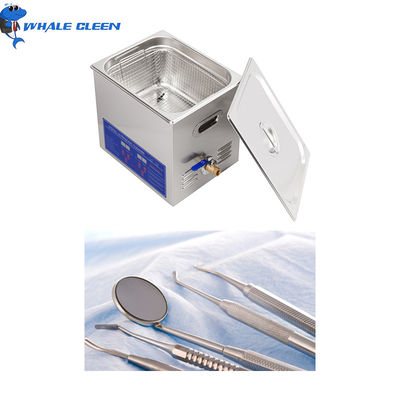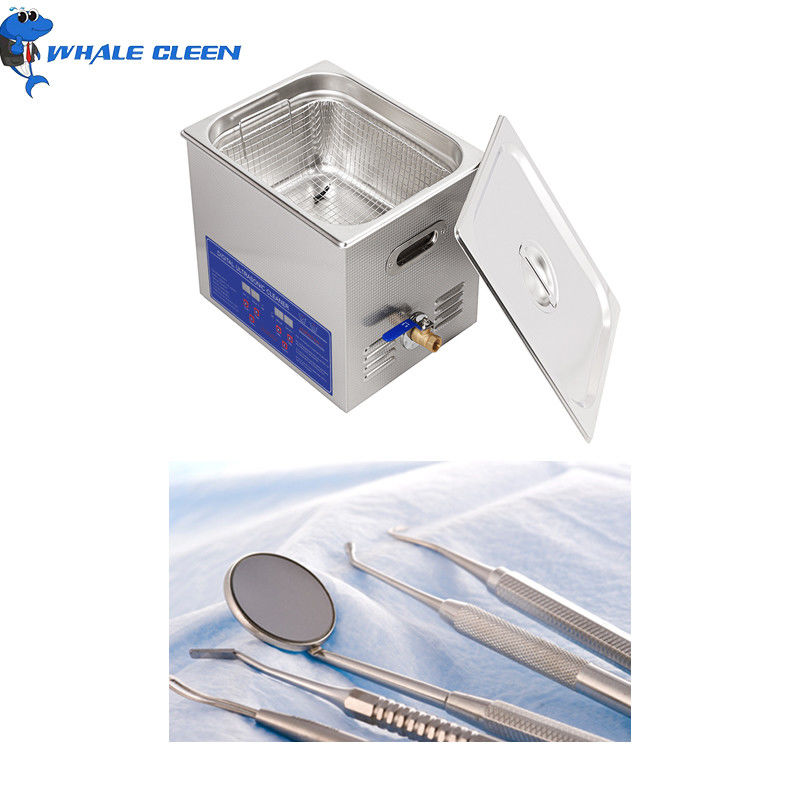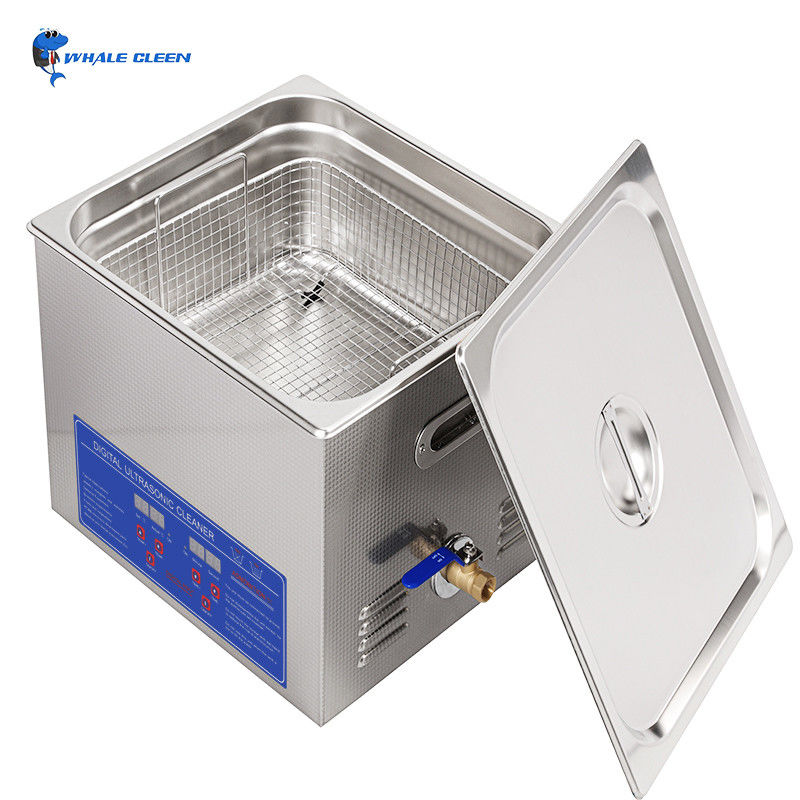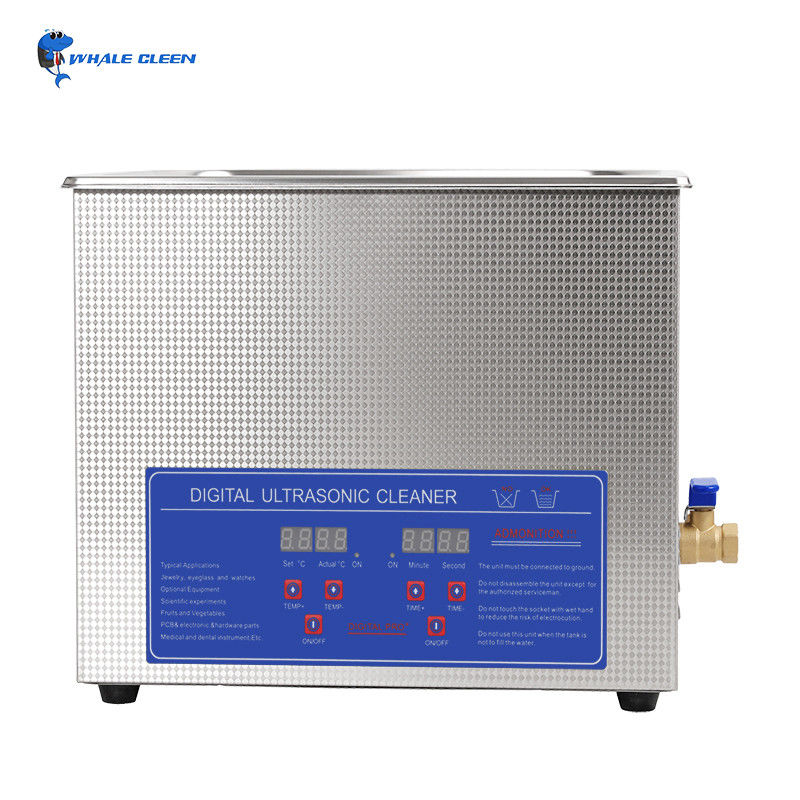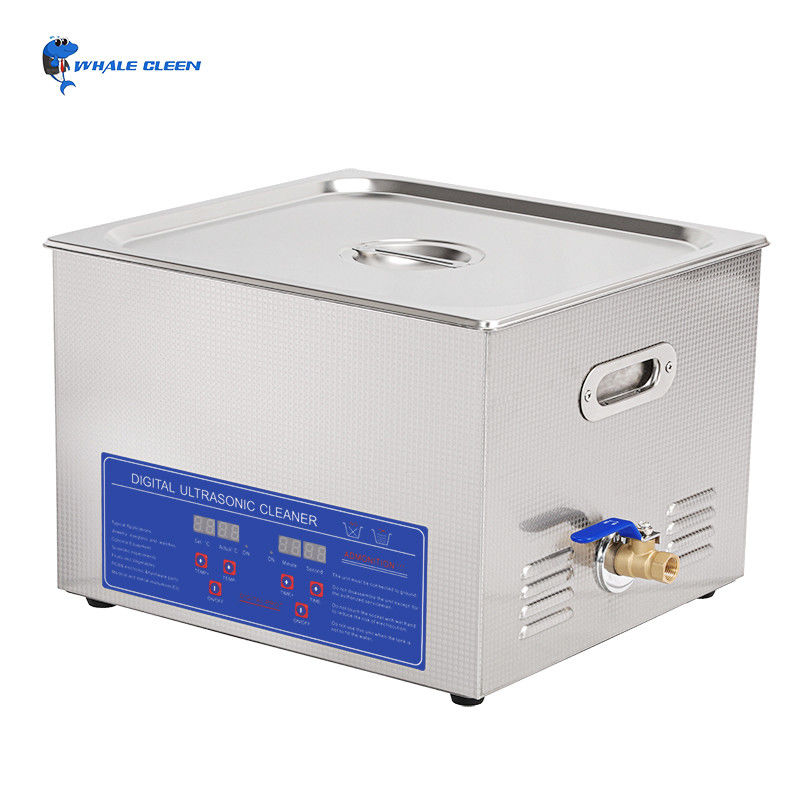-
Highlight
Surgical Instruments Medical Ultrasonic Cleaner
,15L Medical Ultrasonic Cleaner
,Surgical Instruments Ultrasonic Cleaner
-
Tank Size33×30×15cm
-
Unit Size36×32.5×28.5cm
-
Carton Box Size46×41×34cm
-
Frequency40,000Hz
-
Power750W
-
MaterialStainless Steel
-
Place of OriginChina
-
Brand NameWhale Cleen
-
CertificationCE
-
Model NumberZ-S06
-
Minimum Order Quantity2 Units
-
PriceNegotiable
-
Packaging DetailsCarton Box Packing
-
Delivery TimeDepend On Quantity
-
Payment TermsT/T
-
Supply Ability20000 Units Per Month
Surgical Instruments Medical Ultrasonic Cleaner
15L 0.3KW Medical Ultrasonic Cleaner With Heater For Medical Instrument
Why You Need Whale Cleen sonic Medical Ultrasonic Cleaner?
Medical and surgical instruments in a variety of sizes and complexity can pose challenges when it comes to cleaning, disinfecting and sterilizing them after use. An ultrasonic cleaner is an ideal tool for the first step in this three step process to protect medical personnel and patients from possible infection due to pathogens that remain on the instruments after a procedure.
Specification Of Z-S06 And Related Model:
| Model | Tank size | Unit size | Volume | Actual ultrasonic power | Rated ultrasonic power | Ultrasonic frequency | Heating power | Timer | Heating temperature |
| LxWxH(mm) | LxWxH(mm) | (L) | (W) | (W) | (kHz) | (W) | (MIN) | (℃) | |
| Z-S008 | 150x85x65 | 175x110x125 | 0.8 | 30 | 30 | 40 | no | 1-30 | no |
| Z-S01 | 150x135×100 | 175x160x210 | 2 | 50 | 60 | 40 | 150 | 1-30 | 0-80 |
| Z-S02 | 240x135x100 | 265x165x220 | 3.2 | 100 | 120 | 150 | |||
| Z-S03 | 300x150x100 | 325x180x225 | 4.5 | 150 | 180 | 300 | |||
| Z-S031 | 300x150x150 | 325x180x280 | 6.5 | 150 | 180 | 300 | |||
| Z-S04 | 300x240x150 | 325x265x280 | 10.8 | 200 | 240 | 450 | |||
| Z-S06 | 330x300x150 | 360x325x285 | 15 | 300 | 360 | 450 | |||
| Z-S08 | 500x300x150 | 530x325×285 | 22 | 400 | 480 | 600 | |||
| Z-S10 | 500x300x200 | 530x325x325 | 30 | 500 | 600 | 600 |
Customer's Feedback:
![]()
How effective is ultrasonic cleaning?
Through the years many studies that demonstrate the reliability and effectiveness of ultrasonic cleaning have been published. Some of these studies demonstrate the effectiveness of ultrasonic cleaning in standardizing the cleaning process and removing dried serum, whole blood, and viruses from contaminated instruments.9,11,12 Other studies have found that ultrasonic cleaners are significantly more effective and efficient than manual scrubbing,11,13 which is difficult to standardize and can vary in effectiveness from person-to-person.12 In contrast to manual scrubbing, ultrasonic cleaners are automated and standardized and designed to clean surfaces that might otherwise be inaccessible.
While manual cleaning is intended to remove gross debris from the instrument's surfaces, ultrasonic cleaners are designed to remove microorganisms and other fine debris from less accessible surfaces. Some reports suggest that ultrasonic cleaning, preceded by manual scrubbing, results in an even greater reduction in patient debris than achieved by either alone.8 One study demonstrated that as few as three minutes of ultrasonic exposure was sufficient to remove more than 99.9% of blood on contaminated instruments.10 Although data demonstrating its effectiveness in narrow lumens and channels of some complex instruments is limited, ultrasonic cleaners are recommended to increase cleaning efficiency,14 particularly for surgical instruments, like biopsy forceps, that have complicated joints, hinges and other internal surfaces that are difficult, if not impossible, to clean manually.15
Despite all of its benefits, ultrasonic cleaning, like any decontamination process, has its limitations, and understanding each permits its safe harnessing and effective application.7For example, as a result of its aggressive scrubbing action, ultrasonic energy is not indicated for all medical instruments. Although the reprocessing instructions of most surgical instruments recommend ultrasonic cleaning as an integral step in their preparation for terminal sterilization, some instruments may be constructed of delicate materials damaged by its power, precluding the use of ultrasonic energy. Materials, such as quartz, silicon, and carbon steel may erode or become etched after prolonged exposure to ultrasonic cavitation.7 Erosion caused by ultrasonic energy can be minimized, if not eliminated, however, by reducing the ultrasonic cleaner's power and cleaning time. Review of each instrument's instructional manual to determine whether ultrasonic cleaning is contraindicated by its manufacturer is recommended.
Ultrasonic cleaning is usually one in a multi-step process that begins with manual cleaning to remove gross debris. This step is performed immediately after the instrument's use to prevent patient soil from drying. Once manually cleaned, the instrument is then placed in the ultrasonic cleaner. This cleaning step is particularly important for removing fine debris that may not have been removed during manual cleaning. Some ultrasonic cleaners may automatically inject detergent into the instrument's processing basin, as well as lubricate the instrument to prevent corrosion prior to terminal sterilization. Some may also be equipped with channel adapters that flush a detergent solution thorough the lumens of cannulated instruments.
In general, ultrasonic cleaners feature a timer and temperature control to adjust the cleaning time and to increase the temperature of the detergent solution, respectively. They may also be equipped with controls that permit adjustment of their power output (Watts) and frequency (kHz). Covers that reduce exposure of personnel to potentially harmful contaminants and aerosols during cleaning, as well as instrument trays, holders and baskets, may be standard or optional.

